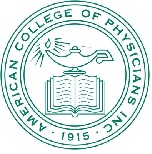When it comes to Rx drug abuse, one could safely hypothesize that we’ll never entirely wipe out the problem. For one reason, it’s simply too big of an issue, and second, when it comes down to it nothing is impossible to acquire these days—but that doesn’t mean officials can’t make it harder.
According to a survey conducted in 2010 by the Substance Abuse and Mental Health Services Administration ( SAMHSA), approximately 16 million Americans aged 12 and older had taken a prescription pain reliever, tranquilizer, stimulant, or sedative in the past year for recreation purposes. Of these, 7 million had abused prescription drugs in the past month.So we can all agree that something has to change. But what?
Most recently, the American College of Physicians ( ACP) issued a policy calling for tighter regulation and management of prescription drugs. The policy (which can be found HERE) outlines ten recommendations that, among other things, call for the educating of, and support for, a comprehensive national policy on prescription abuse. The policy would entreat physicians and clinicians to look at all possible options through the lens of evidence-based, nonbinding guidelines when choosing which drugs a patient should receive, while also taking into account personal history and volatility of drug to cause issues of addiction and abuse.
Furthermore, according to an article posted by Medical News Today, the ACP “strongly advocates for physicians, patient, and public education on the harms of medical and nonmedical use of prescription drugs.
Of all the different paths that government and research institutions seem to be taking to curb abuse (from ER regulation to neurological manipulation, which do you think might hold the most clout?
Let us know in the comments.








